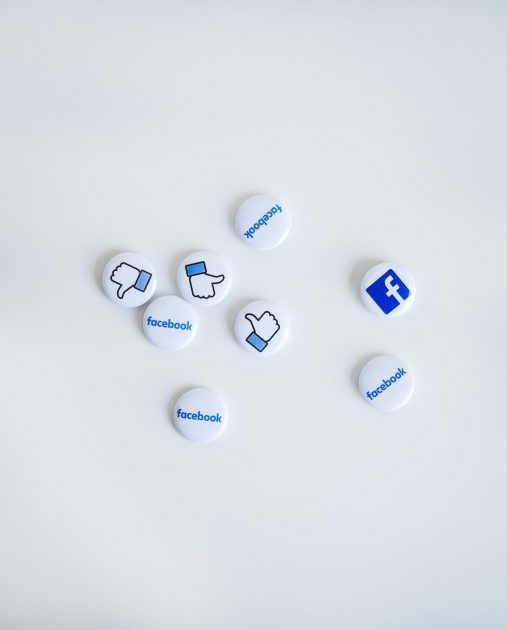You organized a blockbuster event in the past. You spent months promoting that. Now, you want to give another hit event.
But where do you begin?
Follow up with your previous event’s attendees? Run Google ads? Start a social media campaign? SEO? Get the word out through direct mail? Or do all at once hastily?
With twenty different ways to market your event through twenty different means, you’ll end up feeling stuck.
So, your best bet is to break down your promotional strategy into manageable chunks to make it achievable.
This guide will give you every trick in the book to devise an achievable plan of action for event promotion.
An action plan that will drive your target audience to your upcoming events and help increase engagement.
Armed properly? Let’s dive right into it!
What is Event Promotion?
We define event promotion as:
“Using diverse marketing strategies and different channels to spread the word about your event. The motto behind the event promotion is to receive greater public engagement and ultimately upscaled event attendance.”
Face-to-face networking interactions are traditional means to promote your event.
However, with the advancement of technology and the rise of COVID-19 spread, it has become almost absolute to adapt to traditional market techniques.
Now is the time of the digital world. Hence, digital channels like social media, email newsletters, and paid advertising, etc., are excellent ways to execute event promotion in the modern era.
How to Promote an Event?
One word answer would be – integrated marketing campaigns.
An integrated campaign is a joint venture of different marketing channels to promote an event.
This digital media and print media coordinated advertising depends upon your audience.
For instance, if your audience is old-school people, you might want to opt for direct mail.
Statistics show that millennials, 18 – 34-year-old, are greatly influenced by social media influencers. So, their daily use of Facebook is remarkably high – 77%, compared to the 35 – 54 age group with 68% use, and 52% of the 55-year-old and older.
If you’re aiming at reaching a wider audience this time around, then identify your target audience. Get to know which medium do they find reliable.
Only then you can determine how to target them. And whether your message will resonate with them or not.
We will now discuss some tips and tricks on reusing promotional content from previous events.
How to Reuse Marketing Material from the Previous Event?
Repurposing content from the past year’s event promotion will save you plenty of
time.
This content may include a snippet of event videos, event images, credentials of guest speakers, and reviews of participants for marketing.
Let’s talk about them a bit more in detail.
- Promotional Video
Don’t tell people how great your upcoming event is going to be.
Instead, show them.
Create a marketing video using the existing video and images of the past event. It will help their imagination to visualize what they can expect in the forthcoming event.
Send this video to your email list. Feature it on your website. And spread it across your social media channels.
Try to promote short videos because they tend to receive more views on social media. For optimum engagement, keep it around ONE MINUTE mark.
- Showcase Past Speakers
Big names leverage any event associated with their names.
Their credibility lures people to sign up for your event. So, highlight them.
Show past year’s agenda and themes to upsurge meaningful engagement for your upcoming event.
- Positive Reviews
Let’s face it – people trust reviews more than the said claims of a brand. Statistics also show that 88% of customers rely solely on reviews and word of mouth.
Your past event-goers are a goldmine of promotional material. Learn to use testimonials to your advantage.
Highlighting positive feedback from your past event attendees will prove that your team is worth its salt and your event is a must-attend.
- Place the reviews in the most prominent section of your website.
Now kick back! People will tune in, and registrations will skyrocket.
- Video Testimonials
Rev up your promotional campaign by having your previous year’s registrants and speakers record a video about how value-driven your event was.
If speakers speak highly of your company, it’s like getting promoted from director into the C-Suite.
You will certainly close more sales without sounding too salesy.
How to Promote your Event through Social Media?
When it comes to reaching larger and more diverse audiences, social media offers the best practices so far.
You can run paid ads to get the word to an even more diverse audience and set up events that navigate a user to your registration/sales page.
Here are some quick tips to leverage your marketing strategy on social media.
- Be Consistent with Your Hashtags, and Event Handle
According to Inc.com, tweets with hashtags get double the engagement of tweets without them.
You see the importance of using #hashtags, right?
So, make sure to use them appropriately.
These social media channels have default support for hashtags: Facebook, Instagram, Pinterest, Twitter, and Google+.
Decide on creative “brand” hashtags and use them for event collateral across social media.
It will help your potential attendees pull up your social channels. It also factors into establishing consistency to your brand and credibility to your event.
Also, encourage your guest speakers and registrants to post about your event on their social media using your hashtags. It keeps the momentum going even after the event.
- Retargeting Facebook Ads
Facebook is a great platform to track visitors who have visited your website but have not registered yet.
You can close the sale by retargeting that chunk of prospects and taking them back to your website – ultimately registration page.
Through retargeting, chances of a customer’s conversion can surge by 70%.
- LinkedIn Sponsored Ads
If you’re targeting professionals, the best way to promote your content is through LinkedIn sponsored ads.
This feature is significantly effective because LinkedIn holds the database of millions of professionals across the globe.
So, you can advertise your event to a specific group of people who can get the most from your offer.
- Email Newsletters
Having an email list of potential prospects factors a lot in the success of your event. People are on your email list only because you’re offering some value.
And promoting your event through email newsletters is your chance to offer them something more meaningful.
That’s because almost 46.4% of consumers also prefer to be contacted via email. That’s huge!
You can start talking about your event two to three months before the event date.
And then send them official invitations or direct them to your sales page.
A good email invite has the following central components:
- It has the key details (guest speakers, venue, time, etc.).
- It shows how it will impact an attendee.
- It is personal and brief.
After that, you can occasionally remind your email list about the upcoming event.
- Referral Links
A survey shows that 61% of customers make one referral, 34% make 2 to 10, while 5% of customers make 11 or more referrals.
So, use this technique to put your audience to your advantage by turning them into advocates.
Generate referral links for newly registered participants to circulate within their social circle.
To get more referral links, you can consider giving your participants an incentive of a discount every time a third party signs up using their unique link.
Organic traffic in this form will up your marketing game and generate more participants for your upcoming event.
- Instagram/Snapchat Geofilters and Geofencing
Instagram and Snapchat give businesses the luxury of purchasing and customizing their own filters for their specific event.
You can decide for how long it stays live.
The moment your participants are in the proximity of your venue, they’ll receive exclusive access to that geo-filter.
Your attendees can share content with that filter, hence reaching a greater number of people.
Instagram also facilitates businesses with a geofencing feature to run more precise ads based on user location.
With this, you can promote your content off the bat if your event is in the coming weeks or happening right now,
All this promotional work is a daunting task, which requires abundant resources. So, we recommend involving your team to gain maximum output.
How to Divide Workload into Manageable Chunks?
- Involve sponsors
Did you know that your local stakeholders can step in and sponsor your marketing campaign- provided that they drive more ROI in return?
They could sponsor your marketing campaign through their email newsletters. Or by collaborating in creating content that markets the event.
Make it a joint venture, and propose some benefits in exchange.
- Involve Teammates
A good team makes a successful company.
Your teammates who are not part of the marketing team can share some load.
Ask them to join hands in the company’s interest.
To get a collective buy-in, you can offer them incentives. For instance, any team bringing in more registrations will get a surprise gift. A win-win for everyone.
To Wrap it Up
No matter what type of event you’re organizing – live, virtual, or hybrid. There are a lot of ways to generate an effective marketing strategy for your upcoming event.
Brainstorm. Using the right resources, knowledge, and teamwork, promoting your event for the upcoming event becomes achievable.
What is your takeaway from this guide? Tell us in the comments below.
Do you want to know how technology can help you in managing events before, during and after they happen? Book a demo today.


